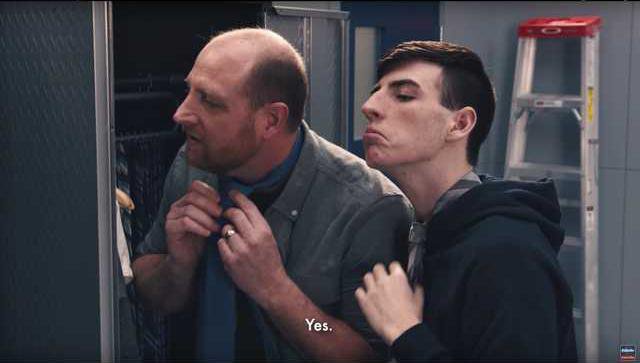With Fathers Day just around the corner, Gillette published a video on YouTube about asking Dad for advice.
Do your kids come to you as much as you went to your dad? the video asked four fathers. The answer was no.
In the video, the sons of the four men were told to learn to accomplish a variety of tasks such as tying a tie, asking a girl on a date, frying an egg and shaving. They were given access to the internet. As each boy struggled to complete the task, his father eventually came to the rescue.
Ninety-four percent of teenagers ask the internet for advice before their dads," according to the description below the video. "On Fathers Day we wanted to change that. To show the power of dads, we pitted Dad versus the internet. The results proved that this Fathers Day you should go ask dad."
When asked whether the internet or their fathers were the better teachers, the boys unanimously answered that the better teachers were their dads.
Watch the video on YouTube here.
Do your kids come to you as much as you went to your dad? the video asked four fathers. The answer was no.
In the video, the sons of the four men were told to learn to accomplish a variety of tasks such as tying a tie, asking a girl on a date, frying an egg and shaving. They were given access to the internet. As each boy struggled to complete the task, his father eventually came to the rescue.
Ninety-four percent of teenagers ask the internet for advice before their dads," according to the description below the video. "On Fathers Day we wanted to change that. To show the power of dads, we pitted Dad versus the internet. The results proved that this Fathers Day you should go ask dad."
When asked whether the internet or their fathers were the better teachers, the boys unanimously answered that the better teachers were their dads.
Watch the video on YouTube here.








